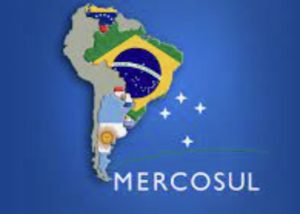TOLERANCE & SOLIDARITY .
An article from the Government of Brazil
The Ministry of Culture (MinC), in the exercise of Pro Tempore presidency of Mercosul Cultural, will propose the campaign “Mercosul without Racism, with Diversity and Inclusion”, to create common strategies to combat prejudice in the countries that make up the economic bloc. The action will be presented on November 9th, in Belém, Pará, during the meeting of Mercosur Ministers of Culture. The meeting will begin at 9:30 am, in the Oval Room of the Government Palace of the State of Pará.
The expectation is that, with approval of the campaign by the participants, the bloc’s ministers and authorities will sign the joint declaration of adherence to the agenda, expressing the commitment of all Mercosur member countries to adopt actions that guarantee the promotion of ethnic-racial equality in their territories, in an intersectoral and continuous manner.
.

Led by Minister Margareth Menezes, the meeting will be attended by the Minister of Culture of Argentina, Tristán Bauer, the Minister of Culture and Heritage of Ecuador, Maria Elena Machuca, the Executive Secretary of the National Secretariat of Culture of Paraguay, Adriana Ortiz, the Vice Minister of Heritage, Memories and Cultural Governance of Colombia, Adriana Molano and the director of the Office of International Cooperation of Peru, Wilyam Abelardo Lúcar Aliaga. The Minister of Cultures, Decolonization and Depatriarchalization of Bolivia, Sabina Orellana Cruz, the National Director of Culture of Uruguay, Mariana Wainstein, and the representative of the Chilean Embassy in Brazil, Alejandro Guzmán, will be present by video.
During the 54th Meeting of Ministers of Culture of Mercosur, which took place in June this year, in Buenos Aires, minister Margareth Menezes received the Pro Tempore Presidency of Mercosur Cultural. At the time, the head of the Ministry of Culture had already announced that one of the main actions of Brazil’s mandate would be Mercosur without Racism.
(Article continued in right column)
(Click here for the original Portuguese version of this article)
Are we making progress against racism?
Latin America, has it taken the lead in the struggle for a culture of peace?
(Article continued from left column)
Officially, the Campaign is an invitation to the governments of Mercosur member countries, as well as organizations and society. “A Democratic State is only possible by guaranteeing equal rights, social equality, ethnic-racial equality and freedom for all people. At this meeting, we will reaffirm our commitment to adopting social development policies for discriminated and vulnerable populations in the countries. These guarantees are fundamental to improving the region’s economic development conditions”, highlights the minister.
The Secretary of Citizenship and Cultural Diversity in the Ministry of Culture, Márcia Rollemberg, reinforces the need for Mercosur countries to adopt measures that will guarantee the population’s equal rights. She states that the Mercosur Without Racism Campaign aims to recognize the contribution of indigenous and Afro-descendant populations to the social formation and cultural identity of member countries.
“Racism encourages the maintenance of a social structure of great inequalities in access and opportunities, in which skin color and other bodily characteristics establish boundaries and limitations in access to social and cultural rights”, he highlights. “The goal is for countries to value and promote diversity, anti-racist education and good living, strengthening the culture of peace and interculturality in our region”, concludes secretary Márcia Rollemberg.
Mercosur Cultural works in an expanded manner, with the participation of member states Argentina, Brazil, Paraguay, Uruguay and Venezuela (despite the suspension of the latter since August 2017), as well as associated states such as Chile, Colombia, Ecuador and Peru. Bolivia also participates as an associated state and is in the accession process. This collaboration has strengthened public cultural policies in the region, providing a valuable exchange of information and experiences from successful cultural programs and projects.
Declaration
The Declaration, which will be presented by Brazil, highlights the importance of adopting and enhancing specific cultural policies for the black population, indigenous peoples and traditional peoples and communities, in confronting inequalities and combating racism. The measures adopted will strengthen cooperation at national, regional and international levels to ensure the full exercise of the economic, social, cultural, civil and political rights of people who are discriminated against.
The text points out that racism consists of a derogatory and discriminatory attitude based on the race, color, descent, national or ethnic origin of a person or group. The consequence is racial inequality as a structural problem to be faced throughout the region. It also argues that racial discrimination encourages the maintenance of a social structure based on inequalities in access and opportunities, and affects both economic inequalities and influences social, cultural and political dynamics.